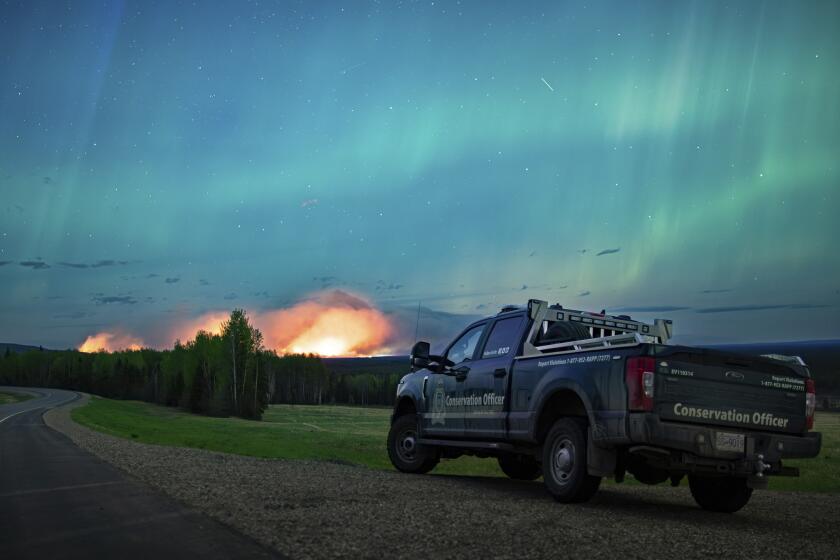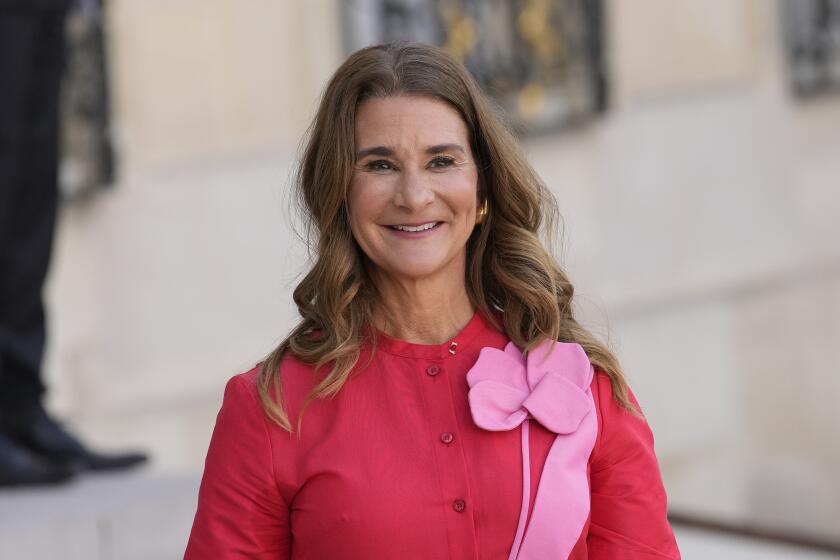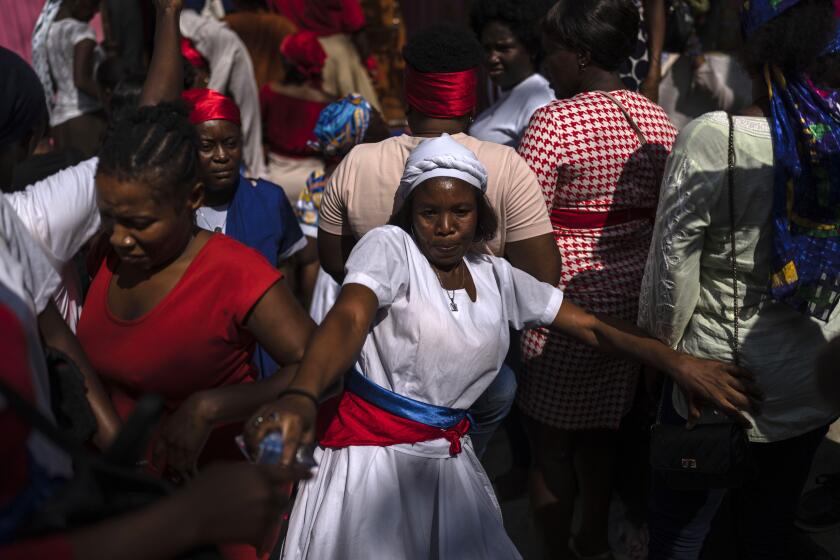SOUTHEAST ASIA : U.N. MISSION: CAMBODIA
The United Nations has never mounted a peacekeeping operation quite like this one. Not only will it send more soldiers and administrators to Cambodia than it has ever sent anywhere but it will also, at least until a constituent assembly is elected to write a new constitution for the ravaged country, act as the administrative power. The U.N. plan follows an agreement last October to settle Cambodia’s 12-year conflict in which the Hanoi-backed government in Phnom Penh battled three guerrilla groups. The Security Council is expected to approve the plan shortly.
WHAT THE FORCE WILL DO:
Military--U.N. forces will monitor cease-fire and disarm warring factions. All Vietnamese troops must leave the country. The four factions now have more than 200,000 soldiers in 650 locations and 250,000 militia members operating in almost every village. In total, these forces have more than 300,000 weapons and 80 million rounds of ammunition. While militiamen will return to their villages after giving up their guns, soldiers will be put into temporary camps.
Elections--Civilian personnel will educate the Cambodian public about elections and will register voters. Everyone over age 18 born in Cambodia, or a child of someone born in Cambodia, will be eligible to vote, an estimated 4.3 million people out of population of 8.7 million. U.N. will also register political parties, ensure that all get fair access to media and supervise elections at more than 1,400 polling stations.
Human rights--U.N. has responsibility of “fostering an environment in which respect for human rights is ensured.” Peacekeepers will use printed materials, cultural events, broadcasting, video cassettes and mobile teaching units in this educational program. U.N. personnel will also instruct civil servants about importance of human rights and look into suspected human rights violations.
Civil Administration--U.N. will have “direct control” over foreign affairs, national defense, finance, public security and information. In foreign affairs, U.N. officials will issue passports and distribute foreign aid. In information, U.N. personnel will review newspapers, radio and television broadcasts and public statements by officials to make sure they do not violate peace agreement. U.N. will run government through 21 provincial offices.
Police--Various factions have more than 56,000 police officers. U.N. will “supervise or control the local civil police in order to ensure that law and order are maintained effectively and impartially, and that human rights and fundamental freedoms are fully protected.” To do this, U.N. will have “civilian police monitors” throughout country.
Refugees’ Return--U.N. estimates more than 300,000 refugees may return to Cambodia. Most have lived in camps along Thai border for 10 years. Many are illiterate farmers. U.N. plans to find land for them, help them get settled with farming and household equipment, and give them food supplements for perhaps a year.
Rehabilitation--U.N. will appoint coordinator for rehabilitation to help with restoration, maintenance and support of utilities, roads, railways, seaports, river ports, airports, telecommunications and other elements of Cambodian infrastructure that have deteriorated or been destroyed in last two decades.
CALENDAR: DISARMAMENT BY 1993
1992: April--Registration of political parties begins. May--Full deployment of peacekeepers. October--Three-month period for registering voters begins. Dec. 31--Target date for disarming all soldiers and militia. 1993: April or May--Elections for a constituent assembly to write a new constitution. THE LEADERS: Yasushi Akashi of Japan, as the secretary general’s special representative for Cambodia, will direct the operation. In a sense, he will act as governor of Cambodia, since he will oversee civil administration. John Sanderson of Australia will head military operations. Military Force: 204 personnel at headquarters in Phnom Penh 485 military observers 10,200 troops in 12 infantry battalions 2,200 engineers 326 in air support 582 in a signal unit 541 in a medical unit 160 military police 872 in a logistics battalion 376 in a naval element of six sea patrol boats, nine river patrol boats, three landing craft and 12 special boats. Civilian Personnel: (The U.N. plans to use its own staff and members of U.N. Volunteer Program--an operation that supplies technical assistance similar to work of Peace Corps in developing countries. But many other civilian workers will have to be recruited.) At least 400 officials to supervise electoral registration. 1,400 polling officers to supervise voting. Staff of 75 officials, including a dozen computer specialists, to work at election headquarters. “Modest” number of human rights officers, other personnel at a human rights office. Unspecified number of civil administration staff members at headquarters in Phnom Penh. 105 to 147 officers in 21 provincial offices. 3,600 civilian police monitors. It is not clear how many people will be needed for resettlement of refugees and rehabilitation of Cambodia.
More to Read
Start your day right
Sign up for Essential California for news, features and recommendations from the L.A. Times and beyond in your inbox six days a week.
You may occasionally receive promotional content from the Los Angeles Times.






